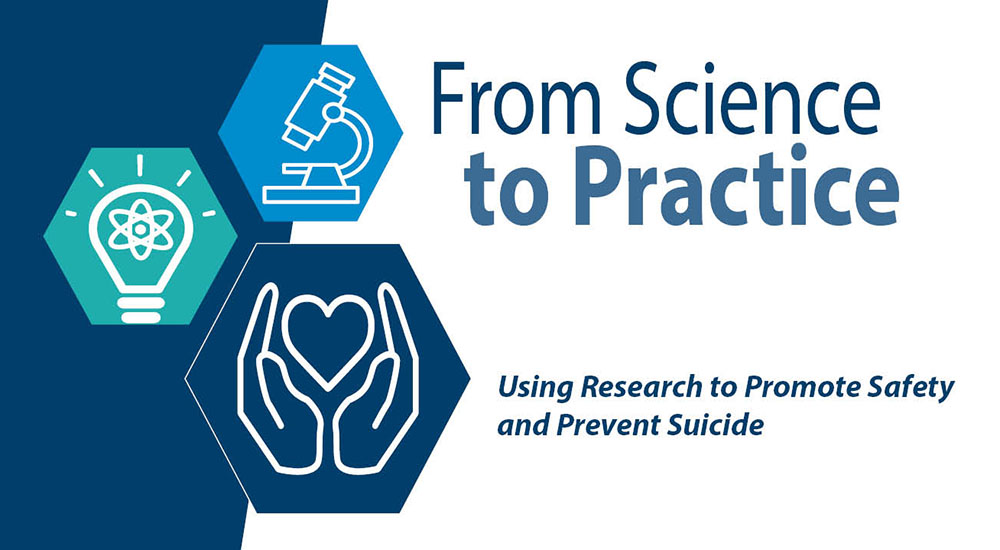Reducing feelings of loneliness and social isolation may reduce the likelihood of dying by suicide.
Understanding risk and protective factors is important to preventing Veteran suicides. “From Science to Practice” is a series of products designed to communicate the research in an easy-to-understand and quick-to-read format for clinicians and other stakeholders within VA and partnering organizations.
The latest issues address “Loneliness and Social Isolation – Risk Factors for Suicide and Ways Veterans Differ from the General Population.”
Loneliness and social isolation
Loneliness is among the strongest predictors of suicidal ideation, suicide attempts and other suicidal behavior. Furthermore, loneliness and social isolation have been linked to other physical and mental health outcomes.
Loneliness may also be more closely associated with suicidality and poor mental health than other aspects of social connection, such as perceptions of social support and interpersonal conflict.
Loneliness is common among Veterans, with one study finding that more than half of Veterans felt lonely some of the time or often. Veterans in particular may face barriers to involving others in their mental health care, such as feeling as though they would be a burden or a desire for self-reliance.
Screening for loneliness among Veterans with mental health conditions may help identify those at risk for suicidal behavior. Resources such as the Veterans Crisis Line and VA Reach Out are available to help Veterans experiencing loneliness.
How Veterans are different
Veterans die by suicide at a higher rate than non-Veterans. Veteran suicide rates consistently increased between 2001 and 2018, and while Veteran suicide rates decreased at a faster pace than non-Veteran rates between 2018 and 2020, Veteran suicide rates continue to exceed those of non-Veterans. There are important differences between the Veteran and non-Veteran populations that may help to explain these disparate suicide rates.
Veterans may be more likely to have had adverse childhood experiences, such as bullying, emotional and physical abuse or sexual trauma than non-Veterans. Veterans also have experiences during their military service that may be risk factors for suicidal thoughts and behaviors, such as combat exposure and morally injurious events.
Veterans experience additional risk factors for suicide immediately following separation from service and throughout the rest of their life course. Veterans are more likely to report suicidal ideation and suicide attempts during the transition to civilian life, as well as worsening mental health and social outcomes.
Moreover, Veterans in VA care experience a higher prevalence of mental and physical health conditions that are associated with suicide risk.
Want to know how you can help? Read “From Science to Practice” on “Loneliness and Social Isolation – Risk Factors for Suicide.”
Topics in this story
More Stories
Pacific Islands VA has opened a new urgent care clinic inside the Daniel K. Akaka VA Clinic.
From one battle to the next, including four types of cancers, Eliot Winokur’s resilience remains unshaken.
As severe weather threatened Mississippi, local news warned of a dangerous outbreak of tornadoes. A VA nurse stepped up.






Loneliness is adequate worse by those there telling us that we extremists. My local VA basically told me that was what I was because I didn’t agree with the current policies of the VA Administration. It makes it very hard to be honest with them, or open up.
Loneliness has become a global epidemic. The fragmenting of our country, pandemic crisis and veteran status only heightens the need to connect with other people as a true survival mechanisms – we need each other. The feeling of complete desolation is a very traumatic experience and requires immediate intervention. Interesting to note that everyone feels loneliness at sometime in their life. It becomes a serious problem if is chronic. The Veterans Crisis line (dial 988 – available 24/7) connects individuals in need with people who care and will help. You are never alone!
I understand, I relate. I wish you well and thank you for your service.
Isolation and denials of suicidal ideations for fear of being forced into treatment only worsen the traumatic experiences I live with. I am a regular user of the veterans crisis line and still can barely deal with my loneliness.
I called the National Hotline. It will be one of the best decisions we can make